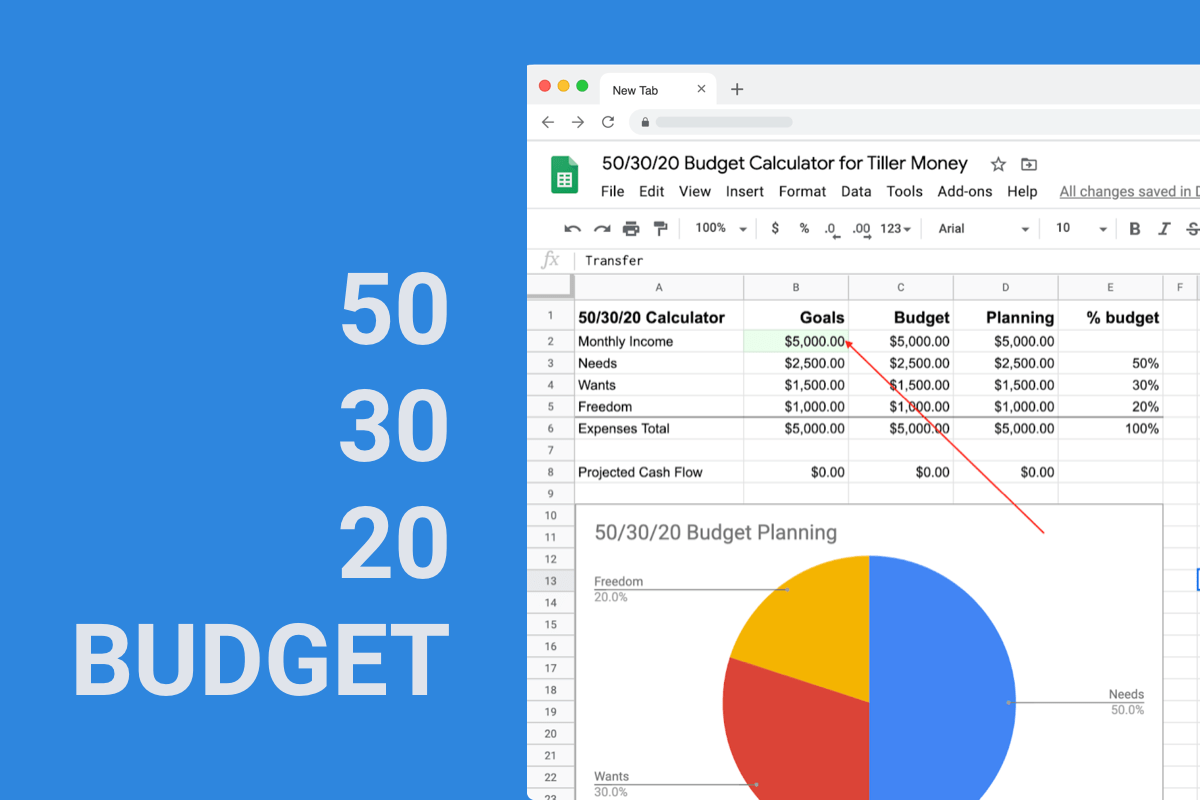Why a Successful Budget Prioritizes Your Happiness

A quick Google search of “how to write a budget” will yield millions of results, many of which will tell you that by cutting out “unnecessary” expenses, such as a daily latte or Thirsty Thursday outing, you will finally be able to create the financial life of your dreams.
But where’s the fun in that?
I imagine it would be deeply unsatisfying to reach retirement age with a fully-funded retirement account and realize you haven’t had fun in 40 years. Your budget should be a tool to help you live a satisfying life within your means, not a method of torture.
But what if budgeting does feel like torture?
You might be using the wrong method.
Unlike a lot of people, I love budgeting. Sure, I’m a bit of a numbers nerd, but what ultimately made budgeting fun was realizing that I’m in control of it, not the other way around. After all, the money belongs to me, not the spreadsheet.
Instead of being a constant reminder of what I can’t afford, my budget is a summary of my priorities, a tool I use to figure out how much I can spend on the things I enjoy most.
With this style of budgeting, you add up all your mandatory expenses and then figure out how much of your income is left. Now the fun begins.
Throw conventional budgeting advice out the window and think about all the things, both present and future, that are most important to you. Write your budget with those priorities in mind.
This is what it looks like for my family:
Our mandatory expenses are rent, electric, gas, water, insurance, Netflix and HBO (yes, these are mandatory in my house), gas for our cars, daycare, and student loan payments.
Obviously, spending money on one thing means not being able to spend money on something else, so you have to figure out where you can cut costs.
My family doesn’t prioritize nice cars, so my husband and I drive 10-year-old cars that we paid for with cash. We rent a small, older house and sublease our basement so our monthly rent payments are about half of the average American’s car payment.
Altogether, our mandatory expenses eat up approximately one-third of our income, so the other two-thirds go to spending on our current priorities and saving for our future priorities.
Our current priorities are our child’s education and eating delicious food, so expenses that fall into one of those categories tend to feature prominently in our budget.
Our toddler loves animals and science. A $200 membership to the zoo or a $120 membership to the children’s science museum might seem like extravagant expenses when my student loan debt is currently twice my family’s annual income, but we buy them anyway simply because it is important to us to do so.
As connoisseurs of delicious food, we choose to eat high-quality, local, and ethically-sourced foods. It just so happens that these foods are two to three times more expensive than their cheapest alternatives. So am I not living frugally if I spend $1000 or more a month on food for a family of three (and also don’t clip coupons)?
Nope. I’m simply enjoying my life and spending my money on what makes me happy.
Our future priorities include a rainy day fund, a down-payment for a house, our daughter’s college education, and retirement. There are plenty of free calculators on the Internet that will help you estimate your monthly savings for these events based on investment growth trends, length of time you have to save, etc.
Based on these calculations, I can figure out how much of my budget should be allocated to savings.
But what do you do if you make just enough to cover your mandatory expenses?
We’ve all been there, and it’s a frustrating place to be. This is when it becomes really important to evaluate what isn’t a priority.
- Do you have to have Netflix and HBO; could you and a couple friends share the subscriptions to reduce the monthly cost?
- Is it possible to bike to work or school just one or two days a week?
- Bottom line: what are you willing to give up in order to spend more on something that’s really important to you?
Another option is finding ways to increase your income
My family just recently purchased an apartment building that generates monthly passive income. Being a landlord can be a lot of work, but you can make great money with very little effort. While buying property might sound out of reach, rest assured that we are neither wealthy nor special; all we did was save a little each month.
If property ownership isn’t your thing or is out-of-reach at present, try cultivating a side hustle. You will be surprised how much you can make by monetizing a hobby or skill.
At the end of the day, I enjoy my life, and I enjoy spending the money I work hard to earn. But I’m not unique. If you’re determined to create the life you want while also saving for the future, it can be done.
Living within a budget shouldn’t mean eating Ramen noodles every night (unless that’s a priority for you) and saying NO to fun. If lattes and going to the bar with friends are really important to you, drink up, my friend!
You just have to figure out your priorities and evaluate where you are and are not willing to cut costs.











